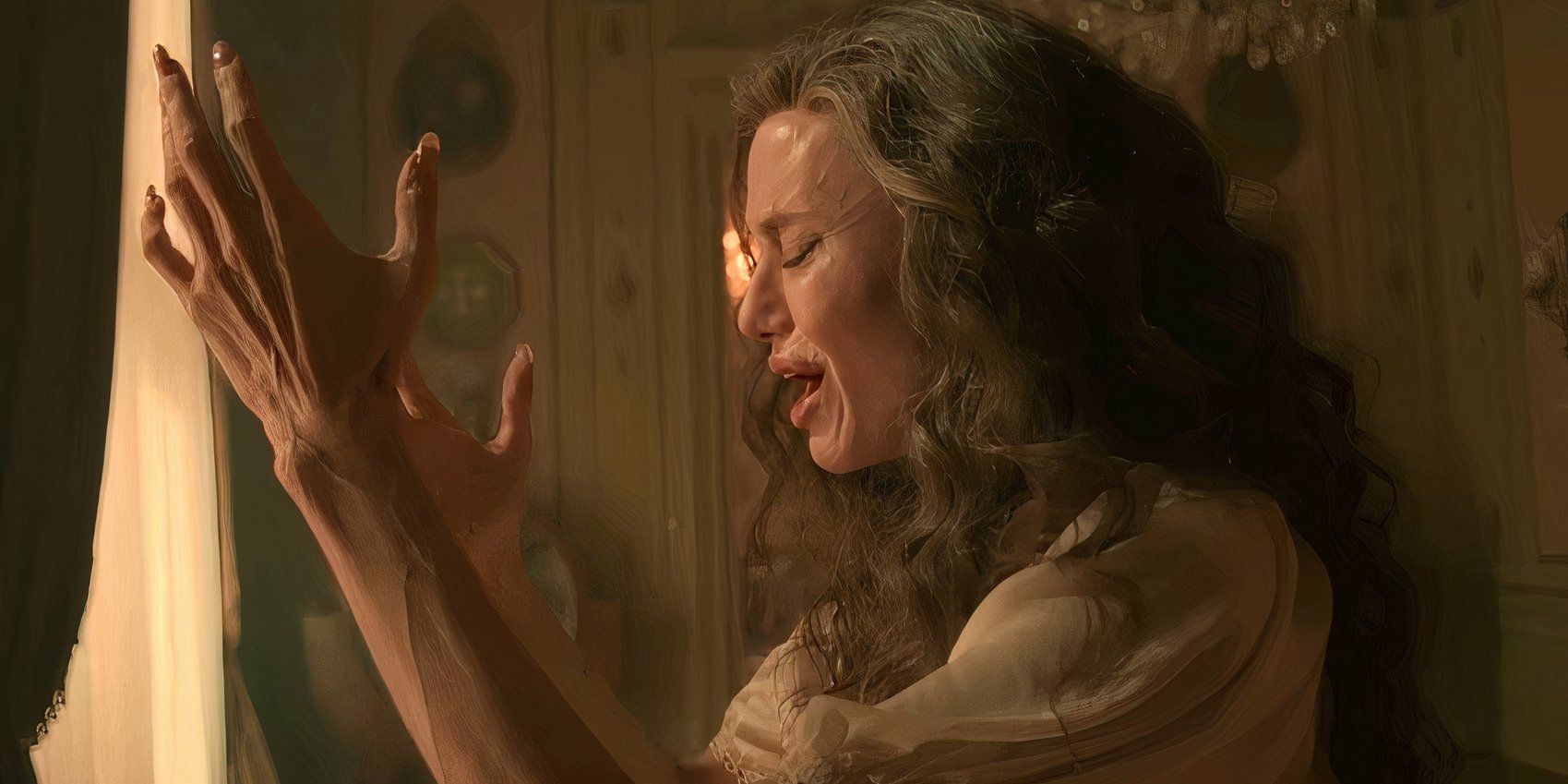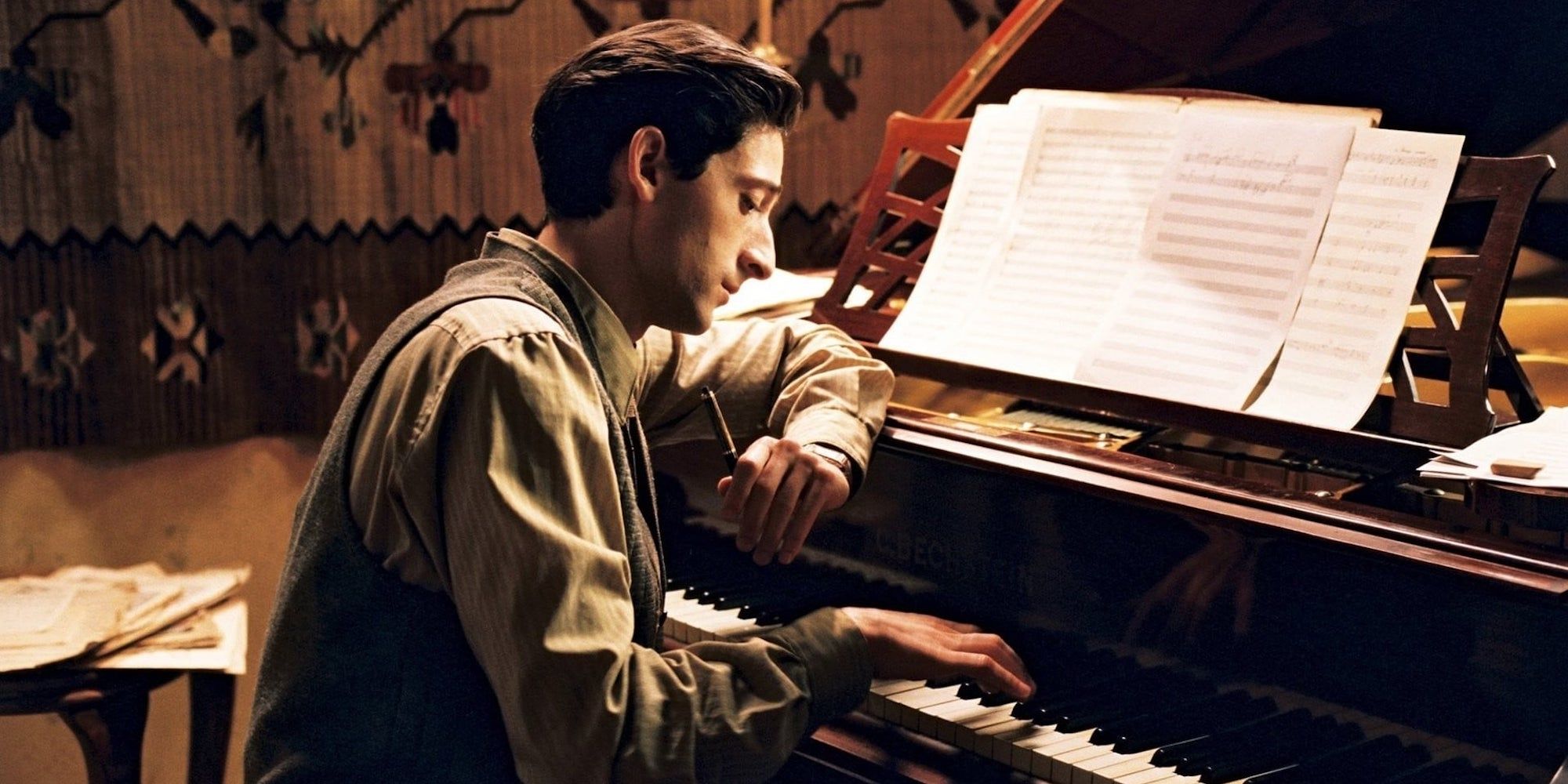Pablo Larraín, who is known for his intimate, character-driven biopics like Jackie and Spencer—which follow international icons Jacqueline Kennedy Onassis and Diana, Princess of Wales, respectively—continues his exploration of complex, larger-than-life women with 2024’s Maria. A portrayal of the final days of Maria Callas, possibly the most iconic opera singer of the 20th century, Maria stars Angelina Jolie as the titular chanteuse, a role that has been considered one of Jolie's best performances. But, given the criticism levied at the artistic interpretation in his previous biopics, it’s important to ask: how much of Maria is rooted in truth, and how much is Larraín’s interpretation?
Maria Callas Did Lose Her Singing Voice
 Image via Netflix
Image via Netflix
Maria blends the truth of Maria Callas’ life with exaggerated aspects. The film, in its exploration of Callas' final days, centers primarily around the psychological effects of her vocal decline and the premature end of her career, as well as Callas' attempt to remedy her voice in the days leading up to her death. Larraín and Maria writer Steven Knight allegedly conducted thorough research on Callas, which included a host of books and documentaries about the reclusive singer, and even received first-hand testimony from Callas’ former butler. Maria Callas did indeed spend her final isolated days in Paris, and her struggle with her declining voice was something well-documented throughout her career. Singing was vital to Callas, and though Maria focuses on the fallout of her vocal decline rather than its causes, there are several theories, including but not limited to her rapid weight loss in 1953 and 1954, the strain caused by demanding performances early in her career, and Callas' loss of confidence in her voice.
Callas' Alleged Drug Use Features Heavily in 'Maria'
Though the depiction of Callas' struggle with her vocal decline was altogether accurate, the portrayal of her alleged drug use may have been exaggerated. In Maria, a documentarian named Mandrax (Kodi Smit-McPhee) conducts a series of interviews with Callas regarding her life and legacy in her final days, which is used as a convenient framing device for the film. However, Mandrax, among others, turns out to be a figment of Callas' imagination, a hallucination brought on by an addiction to methaqualone (also known as Mandrax).

Related
The 10 Best Biopics of the Last 25 Years, Ranked
These modern classics were positively transporting.
In reality, though there is no concrete information supporting a dependency on methaqualone, it is alleged Callas was addicted to the sleeping pill. It is widely known that she struggled with drug use in her final years, as it was rumored that Callas' relationship with Aristotle Onassis introduced the singer to a variety of drugs, including methaqualone and pentobarbital. The hallucinations brought on by drug use, however, are unconfirmed. No official reports exist that state Callas was suffering from hallucinations, even in the final days of her life.
Pablo Larraín and 'Maria' Took Some Liberties With Callas' Life Story
While it’s unknown whether she spent her final years building her voice back up, Steven Knight is quoted as saying he and Larraín learned that Callas “was in the process of trying to rebuild her voice, but without any real intention of performing for other people.” Though Callas may have spent her final moments singing—as depicted in the film—it seems highly unlikely and there's no evidence that she gave a final performance moments before her death.
Maria correctly depicts the manner of Callas' death as a heart attack, and while official records state that Callas died of a heart attack on September 16, 1977, the singer's cause of death is disputed. It is speculated that Callas' alleged drug dependency was a factor, while other sources believe that Callas' longstanding health issues—including the autoimmune disease dermatomyositis, for which the singer took cortisone and immunosuppressants—contributed to her eventual heart attack. As in real life, Maria shows Callas alone in her apartment when her body is eventually discovered.
The film takes further liberties with the story of Callas’ life: it ignores her ongoing affair with Aristotle Onassis after he married Jackie Kennedy, and adds a sit-down conversation with John F. Kennedy (Caspar Phillipson) that likely never happened. This is to be expected, as a frame-for-frame re-telling of anyone's life is unlikely to result in an entertaining piece of art. However, though Larraín has a history of exaggerating the more tragic aspects of the lives of the women he centers in his biopics, Maria is still a fairly accurate depiction of the singer’s life and career — mixed with, of course, the requisite dash of Hollywood drama.
Maria is available to stream on Netflix in the U.S.

Maria follows the renowned opera diva Maria Callas as she lives in seclusion in Paris during her later years. Despite her deteriorating health, Callas receives an intriguing invitation to tour, prompting reflection on the legacy and influence of her storied career in the world of opera.
Release Date November 27, 2024
Runtime 123 Minutes









 English (US) ·
English (US) ·